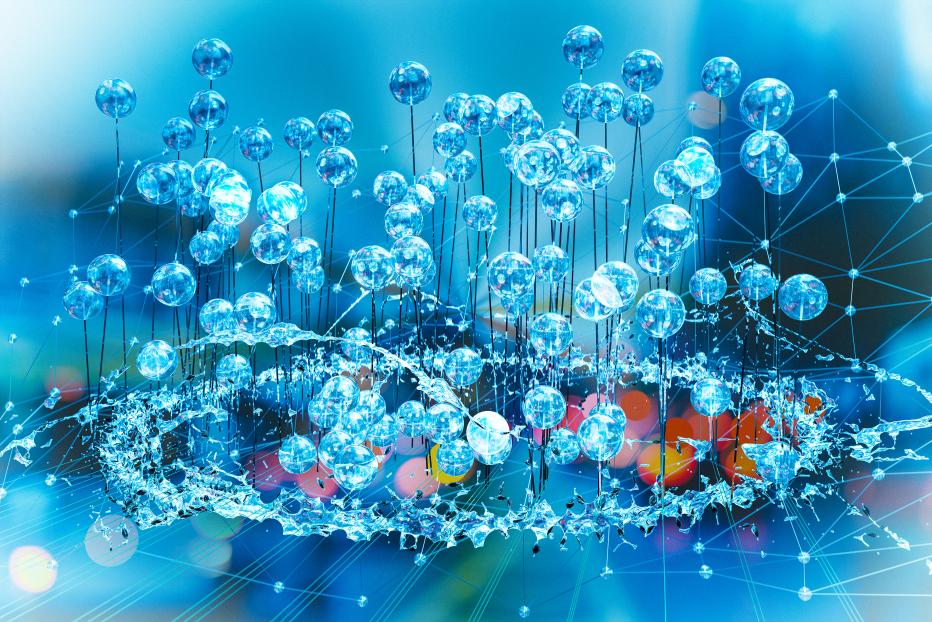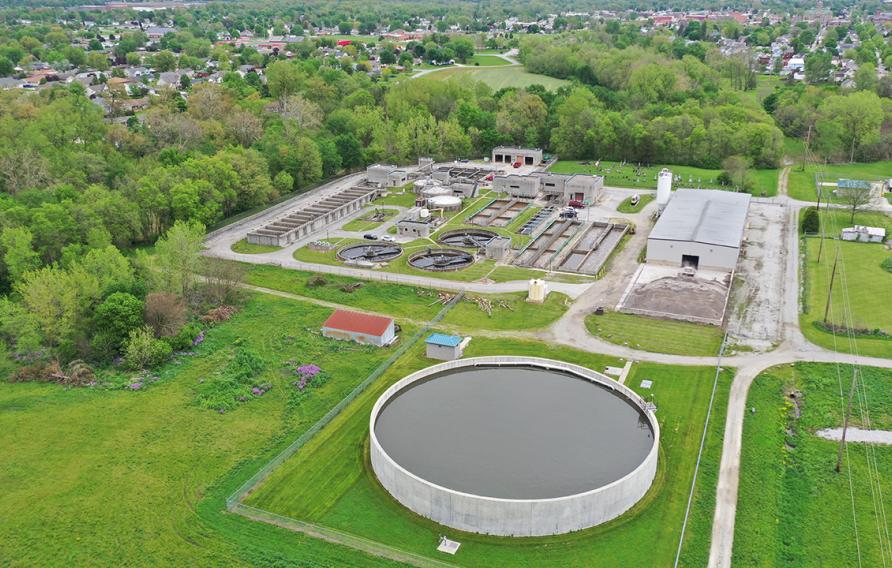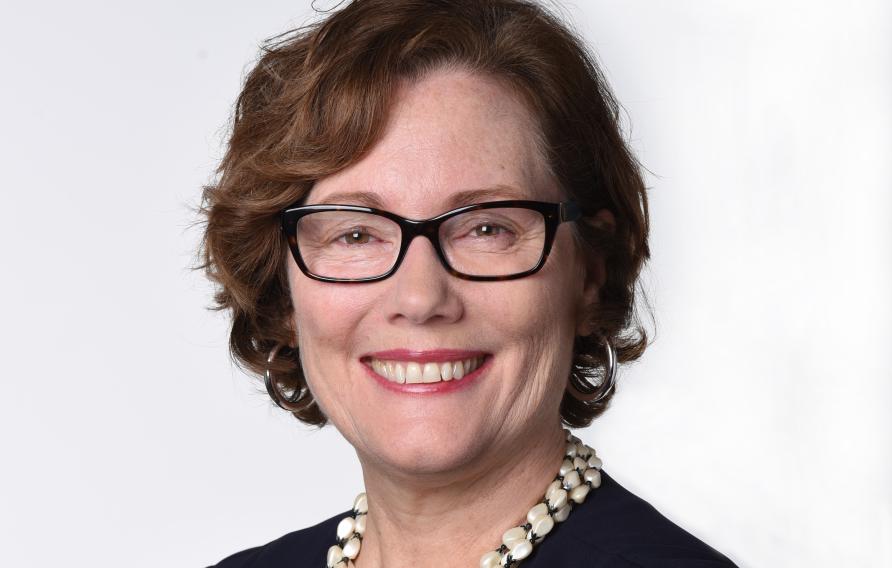
We’re living at a time when technology is rapidly changing the world and that presents opportunities – and challenges — for how we manage our water resources. From artificial intelligence to cybersecurity, our toolkit expands every day with new solutions and best practices — and as Jacobs’ Global Water Director, I’m continually assessing how these innovations will change our industry.
As I’ve recently written in the latest issue of our digital magazine Reimagined Perspectives, at Jacobs we embrace an integrated and collaborative approach to water management. Our OneWater philosophy recognizes that all water has value, that the challenges we face are complex and interconnected, and that the solutions we bring forward must be inclusive, sustainable and equitable.
As we now support more and more of our clients with the digital transformation of their water, wastewater and stormwater systems, we’re complementing our integrated approach to water management with innovative data-enabled solutions. We call this Digital OneWater.
An integrated ecosystem
My vision for Digital OneWater is a future where we manage water using an integrated ecosystem of data-enabled solutions. We take a holistic view of the challenges before us and apply domain-driven digital tools to transform and optimize our assets and operations.
This is quite a hefty statement, so let’s unpack it.
Firstly, we should lay out some key components of OneWater management:
- Know everything you can about your system, including where it is located, how it operates, its condition and how it interacts with the systems around it.
- Establish how the system will change in the future, with climate change as the key accelerator:
- Flooding and water scarcity
- Population growth and urbanization
- Aging infrastructure and aging workforce
- Recent and emerging regulations
- Water/energy/food nexus
In each of these areas, data-enabled solutions offer significant advantages. By using GIS, hydraulic models and Digital Twins, we can understand everything about our systems in their existing condition, and then apply sophisticated simulations and predictive tools to optimize those assets today and for the future.
For instance, we can use machine learning to optimize the chemical usage at our treatment plants, predict the water quality impacts from forest fires, or optimize our wet and dry weather operations to reduce combined sewer overflows into our waterways.
Take the example of the Digital Twin we’ve developed for Singapore PUB’s Changi WRP using our Replica platform. We’re integrating process, hydraulics, controls and advanced data analytics into a single, whole plant simulation capable of replicating plant operations and predicting future performance in real-time. I was recently at the World Water Congress in Copenhagen, Denmark, where the International Water Association recognized Jacobs and PUB with a Project Innovation Award for the Changi Digital Twin.
“At Jacobs, our goal is to serve as a digital transformation partner and advocate for our clients. Our deep domain knowledge across the entire water cycle and asset lifecycle — from planning and design through to operations — means that we have a unique view on where digital solutions are best applied.”
We can also use artificial intelligence to more efficiently assess the condition of our pipes. In fact, I see Digital OneWater as a key solution to water scarcity in regions like the western U.S., where we can both improve conservation by minimizing water loss from leakages and optimize wastewater and stormwater reuse projects. For example, we implemented a Digital Twin to optimize the design of San Diego’s Pure Water recycling program.
At Jacobs, our goal is to serve as a digital transformation partner and advocate for our clients. Our deep domain knowledge across the entire water cycle and asset lifecycle — from planning and design through to operations — means that we have a unique view on where digital solutions are best applied.
We’ll be saying a lot more about Digital OneWater at WEFTEC in New Orleans, October 8-12. Visit Booth 6913 in the Intelligent Water & Cybersecurity Pavilion to connect with #OurJacobs team and learn about our solutions Aqua DNA and Dragonfly. Our team will also be presenting in a series of technical sessions, including topics focused on machine learning and AI for nitrous oxide mitigation and simulation models for biofilm systems. View our full speaking program here.
About the author
As Jacobs’ Global Water Market Director, Susan Moisio leads our team of more than 9,000 visionaries and doers to develop innovative, sustainable and comprehensive solutions for tomorrow.
Susan and the team of technologists she leads are committed to providing clients world-leading technical and environmental expertise to address complex challenges across drinking water, wastewater, desalination, conveyance and flood control challenges with Jacobs’ OneWater approach to water management.
Named one of the top 40 influencers in the water industry by Global Water Intelligence (GWI), Susan is also the go-to person for wet weather and conveyance solutions. She works tirelessly to share her expertise as a mentor within Jacobs as well as by giving back to the water industry.
You might be interested in...
-
 News
NewsA OneWater Story: Water Affects Us and Connects Us All
What do Wapakoneta, Ohio; Dubai, UAE; Neil Armstrong and Jacobs have in common? They’re all part of Celebrating World Water Day and its ties to OneWater.
-
 News
NewsSusan Moisio Named Global Director of Jacobs’ Water Market
Named one of the top 40 influencers in the water industry by Global Water Intelligence (GWI), Susan Moisio is the go-to person for wet weather and conveyance solutions. And now, we’re excited to announce she will lead our water solutions globally as the new Global Director of Jacobs’ Water Market. Read more about Susan's career and her new role in this article.
-
 Showcase
ShowcaseMeet Susan Moisio
As Jacobs Global Water Market Director, Susan Moisio leads our team of more than 9,000 visionaries and doers to develop innovative, sustainable and comprehensive solutions for tomorrow.













































